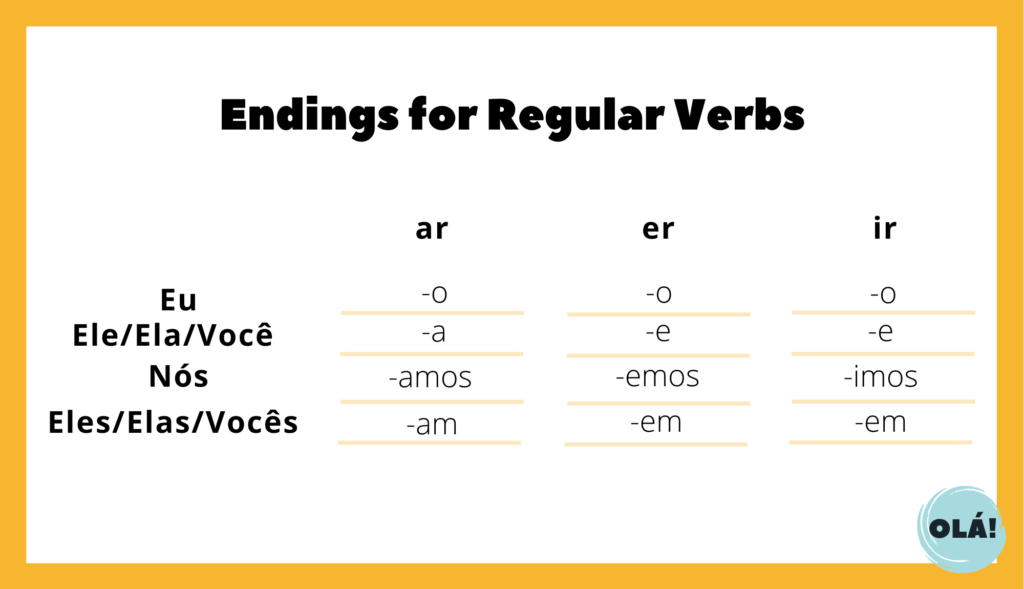Regular and Irregular Verbs in Present Tense
Today we are going to learn about how to use regular and irregular Brazilian Portuguese verbs in Present tense.
Base form
First let’s talk about the base form of verbs in English. Some examples are:
- to eat
- to like
- to want
- to eat = comer
- to like = gostar
- to want = querer
Personal Pronouns
One major difference between English and Portuguese is that verb endings change much more often in Portuguese than they do in English. Notice below, the verb to eat only changes twice (eat/eats).
- I eat.
- He eats.
- She eats.
- You eat.
- We eat.
- They eat.
In Portuguese there are typically 4 ways a verb can change in present tense depending on the pronoun used. First let’s quickly go over the pronouns in Portuguese:
- I = Eu
- He = Ele
- She = Ela
- You = Você
- We = Nós
- They = Eles (male or mixed gender)
- They= Elas (female)
- You = Vocês (plural)
Let's Conjugate verbs
When we are conjugating a verb in present tense we take the ending of the base verb (-ar, -er, -ir) and add the endings outlined in the table below.
There are 2 steps to conjugating verbs:
Step 1: Get rid of the verb anding (-ar, -ir, -er)
Step 2: Add the new ending.

Let’s conjugated the verb to eat. ‘To eat’ in Portuguese is ‘comer‘. Notice the -er ending. So, we will use the table above to replace the -er ending with it’s new ending.
- I eat = Eu como
- He eats = Ele come
- She eats = Ela come
- You eat = Você come
- We eat = Nós comemos
- They eat = Eles comem
- The eat = Elas comem
- You eat = Vocês comem (plural you)
Irregular Verbs in Present Tense
Portuguese is full of irregular verbs and the only way to learn their conjugations is to memorize them. There’s no hard and fast rule. I love using this site to look up conjugations.
Each completed unit of our curriculum has a dedicated grammar page. This is where you will find the regular and irregular conjugations as well as special rules for special verbs.


